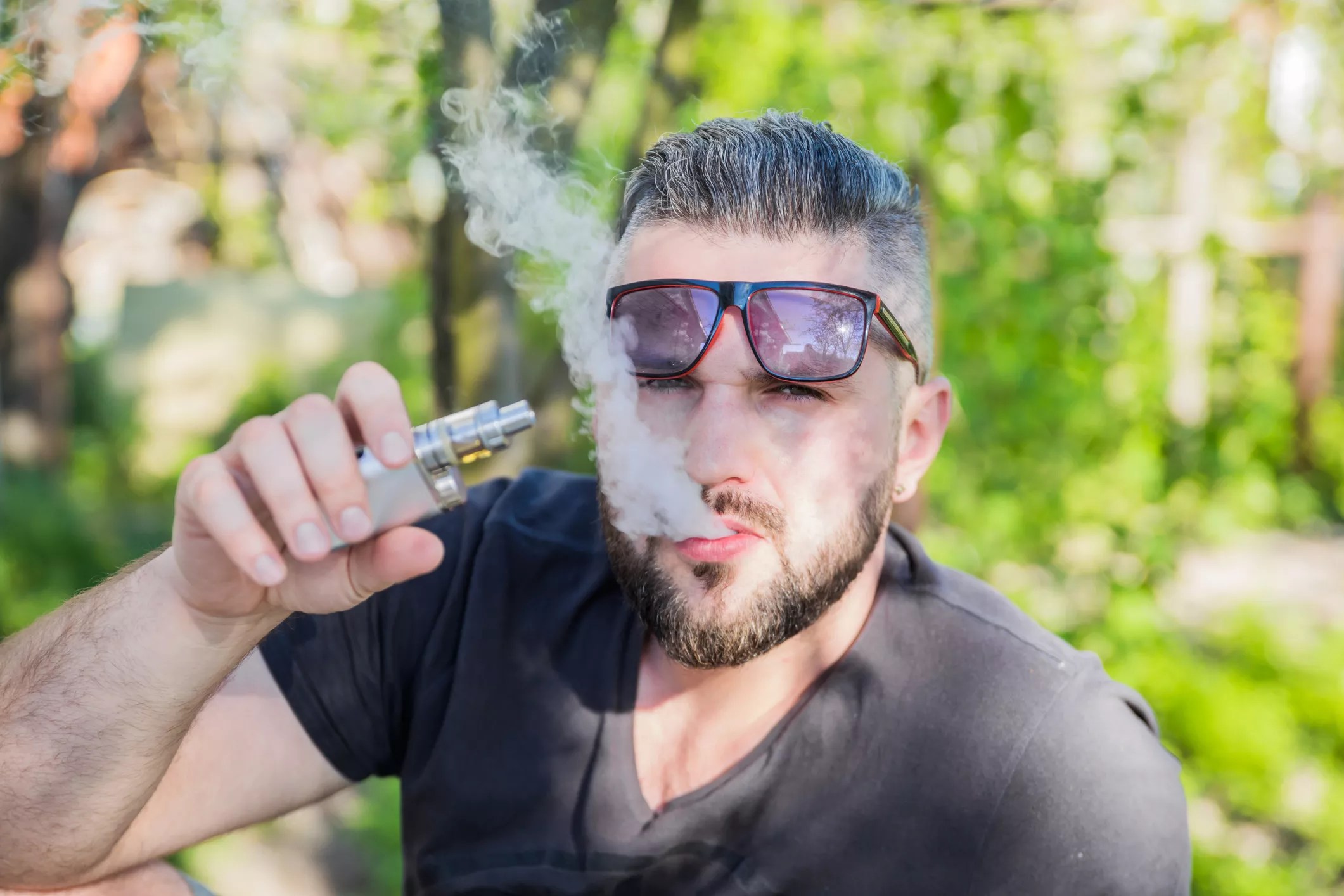
Anton Petrus / Moment / Getty Images

Audio By Carbonatix
Tempe City Council doesn’t even vape, bro.
The seven-member council cobbled together a proposed ban on what they’re calling “flavored tobacco vape products” and held two meetings in early December to hear public comments ahead of a vote early next year.
Overwhelmingly, people spoke out against it.
Councilmember Joel Navarro first floated the ban in August. During a virtual meeting on December 7, he said that parents and teachers “have been noticing kids underage actually are vaping at school.”
But since raising the idea of a comprehensive ban in the city, the proposal has come under fire for a host of problems – conflating the vape and tobacco industries, factual errors, its impact on Arab business owners and hookah users, unintended consequences such as fueling a black market, and holes large enough to fit even the biggest hookahs through.

Dave Prokell, who opposes the proposed ban on flavored nicotine products in Tempe, put up signs at It’s All Goodz Smoke Shop to help raise awareness and encourage others to speak out.
Elias Weiss
Proposed Ban Is Factually Challenged
Navarro broached the idea of a flavored tobacco ban after hearing second-hand anecdotal observations about increased vape use among school kids. The proposed ban asserts, “The use of electronic cigarettes by minors and young adults has been rising in recent years due to the flavored tobacco used in vaping.”
Yet the ordinance doesn’t offer evidence to support either element of the claim, and neither is accurate.
You’d be hard-pressed to find an electronic vape that’s used to smoke tobacco, according to Liam Niederbaumer, a former vape shop chain manager from Fountain Hills and vice president of the CBD brand CannaBlast.
“No kids are vaping tobacco,” he said. “It’s just synthetic nicotine in disposable vapes and other vapes.”
Freebase nicotine vape juice sold in Tempe stores is pharmaceutical grade, meaning it’s highly regulated and isn’t derived from tobacco, Niederbaumer said. As of 2021, virtually all of the vape juice sold in the U.S. uses synthetic nicotine rather than tobacco-derived nicotine.
And according to numbers from the federal government, the use of electronic cigarettes by minors and young adults has been decreasing year over year – not increasing, as the Tempe proposal asserts.
Youth nicotine use plummeted in the last three years, according to the 2022 National Youth Tobacco Survey from the Centers for Disease Control & Prevention. In 2019, the CDC found more than 6.2 million American middle and high school students were smoking nicotine. This year, that number was just 3 million and falling.
Tobacco use among children is the lowest in recorded history with just three percent of middle and high school students in the U.S. having tried it, according to the CDC’s 2022 report. And never mind the fact that all nicotine products are already illegal for people younger than 21.
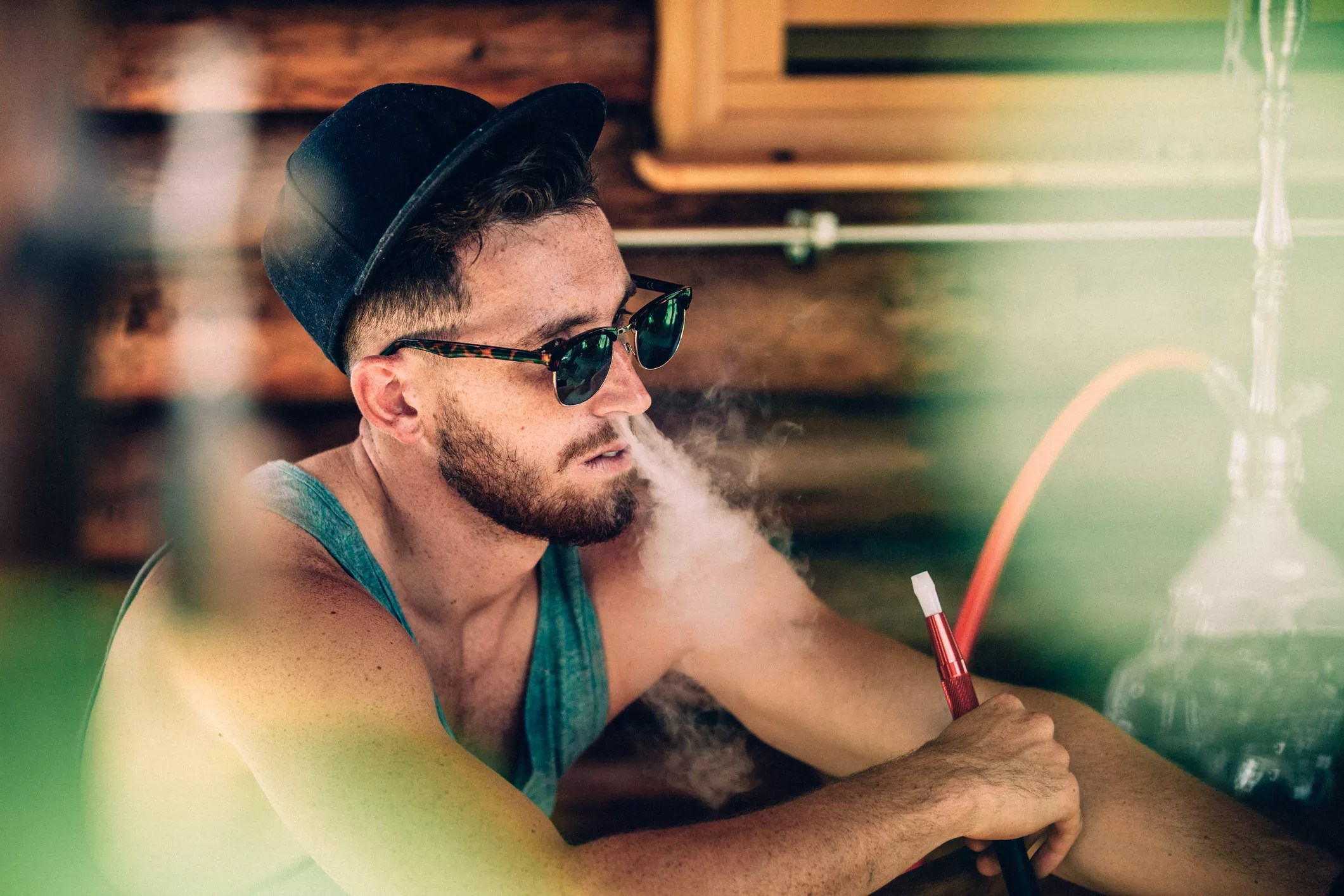
A proposed ordinance in Tempe targets hookahs.
CasarsaGuru / E+ / Getty Images
Accidental Racism?
Smoking shisha tobacco, the molasses-coated leaves heated in a hookah, has been a cultural expression among Arab people for more than 500 years. In many Arab households, “offering a shisha to a guest is an important sign of trust, and withholding it could be taken as a serious insult,” according to Fumari, a national hookah retailer in San Diego.
The proposed ban goes out of its way to specifically call out “any component, part, accessory, instrument, or paraphernalia, including a hookah” as being unlawful if the products are used to market flavored tobacco or being sold in stores or cafes that don’t have permission from the city.
In fact, the proposed ordinance mentions hookahs four times, something critics point to as evidence that it’s targeting people who enjoy hookahs as a cultural tradition.
“The Arabic community is a minority community that’s already an adversely affected community,” said Jacob Krull, a Turkish hookah industry worker who manages the Alibaba lounge near University Drive and Rural Road. “Hookah is the very central point for gathering and communing. To include hookah products in the ban would feel like a targeted attack on an already marginalized community.”
Travis Smith, a 10-year veteran of the hookah industry, spoke out against the proposal at a City Council meeting on December 8.
“Hookah is a cultural thing,” Smith said during the meeting. “It is a way for Middle Eastern immigrants to get together, to be with people from their culture, and to express themselves.”
The most popular variety of shisha tobacco used in a hookah is flavored with apple pulp, black licorice, dried dates, and molasses. The flavor has been likened to coffee or liquor in that it is generally a mature, acquired taste among adults.
There are a dozen hookah lounges in Tempe and two dozen more shops selling hookah supplies, and several are owned by immigrants from the Middle East. You can’t enter a hookah lounge or vape shop unless you’re 21 or older. And the average hookah smoker in the U.S. is over 30 years old, according to a 2020 study published in the Journal of Physics.
By all accounts, the City Council and supporters of the ban seem to agree on its purpose: to get vapes out of the hands of children in school. Savannah Harrelson, a public information officer for Tempe, said the council is “trying to keep nicotine delivery devices out of schools.” Councilmember Doreen Garlid also told Phoenix New Times that her goal is “to stop youth from having access to these products … just blocks away from their schools.” Navarro declined to discuss the ordinance.
But the proposal’s focus on hookahs distracts from that purpose, opponents said.
The use of hookahs would be nearly impossible to carry out in a school given that they are large, heavy, and expensive. Preparing one takes time and skill, and requires supplies beyond the hookah itself, including a coal oven.
“You’re not going to see a child going into a school, lighting up hookah in the bathroom,” Smith said. “As a professional in this industry for 10 years, it takes me over 15 minutes just to prepare a hookah for myself.”
After the December 8 meeting, Garlid told New Times that she’d consider exempting hookah lounges from the ban in the face of backlash but wouldn’t address whether that would include an exemption for hookah supplies sold in stores.
“We have begun a review of options to address concerns from hookah establishments, including a possible exemption from the proposed restrictions,” Garlid said.
She went on to suggest that the use of hookahs by Arab consumers is more about marketing than centuries-old cultural traditions.
“Communities of color – adults and young people – have long been the target of Big Tobacco,” Garlid told New Times in response to a question about including hookah in the ban.
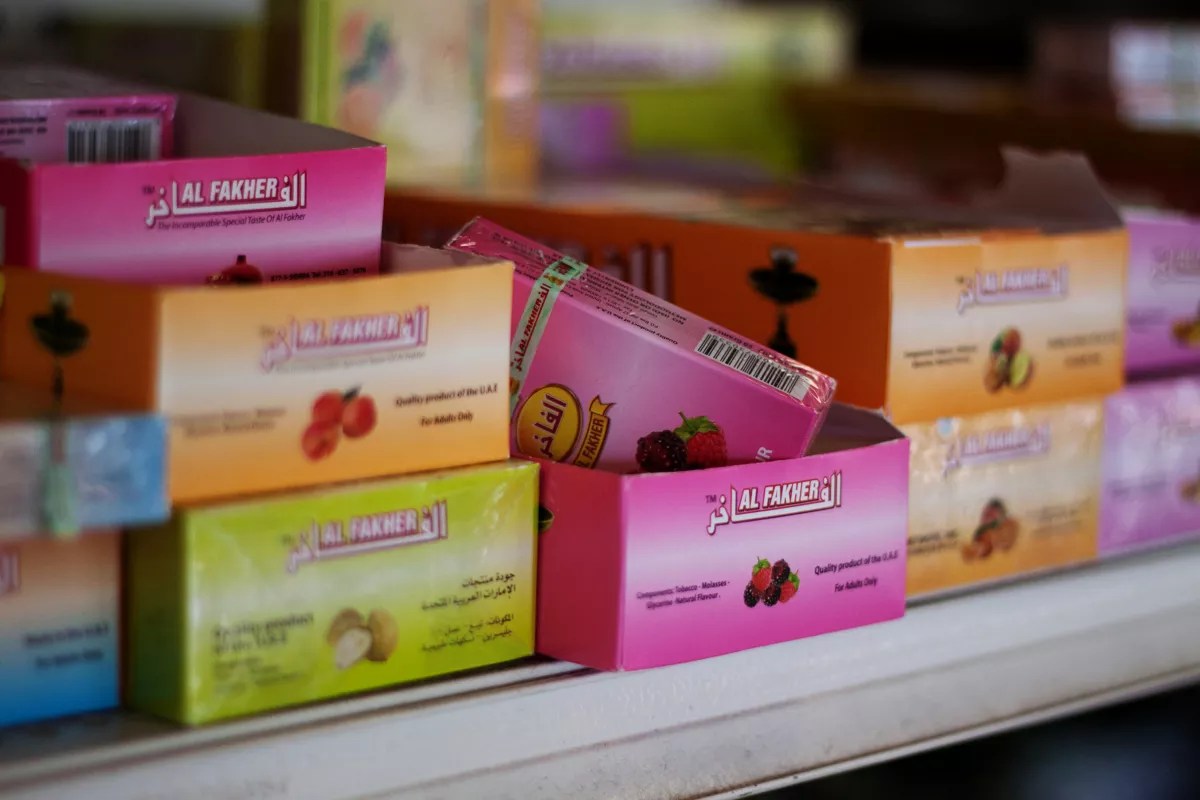
Some business owners in Tempe are concerned about the impact of the proposed ban on the city’s hookah joints.
Evie Carpenter
Bad for Business
Smith, who works at Tangiers Tobacco, is concerned about what will happen to his colleagues if Tempe passes the ban.
“Without hookah, many of these people are not going to have a livelihood,” he said. “They don’t have the financial means and education to be able to move on. A broad ban on flavored tobacco will destroy many businesses in this community.”
Jose Hernandez, a Tempe resident and convenience store employee, is worried about his own job security if the ban passes.
“The focus should be on good parenting, not closing legitimate businesses that create jobs within our community,” Hernandez said at the December 8 council meeting.
Tempe borders Phoenix, Mesa, Scottsdale, Chandler, and Guadalupe – five areas where the sale of flavored vape products is legal. Business owners and critics of the ban fear that adults who regularly purchase these products will spend their dollars across city lines instead of at businesses in Tempe. Some 20 percent of adults in the U.S. use tobacco products or vape, according to the National Institute on Drug Abuse.
Some critics are concerned the Tempe council is going out of its way to protect big tobacco companies – something we’ve seen in Arizona time and time again, including just last year.
“You guys are protecting tobacco,” Jason Bartlett, a Tempe business owner, told the City Council on December 8. “Your law says cigarettes are still on the market. You’re killing people with cigarettes.”
Elsewhere, Bans Haven’t Worked
Bartlett’s concern is backed by evidence.
In 2020, Massachusetts became the first state to enact a ban on flavored nicotine products. It’s not working well, according to a study by Jacob Rich, a health care policy analyst at the Los Angeles-based Reason Foundation.
From the year before the ban was enacted to the year after, Massachusetts saw a massive spike in the number of packs of cigarettes sold. The state saw an increase of 15.6 million non-menthol packs sold, yet that wasn’t enough to make up for the loss in revenue from vapes and other nicotine products, and its economy took a $125 million hit, the study found.
Basically, the ban in Massachusetts turned more residents onto the more dangerous traditional cigarette while removing dollars from the local economy.
Rich concluded that “prohibitions on flavored tobacco sales are far less effective when bordering states and counties provide access to prohibited products.” He added that “tobacco flavor bans may lead to net increases in tobacco sales.”
A report from the Illegal Tobacco Task Force in Massachusetts showed that state police seized more than 213,000 illegal vapes in 2021.
Yale University’s Abigail Freeman published her own study on the comprehensive flavor ban in San Francisco, and she found that youth within the city had double the odds of smoking cigarettes compared with those living in a city with no flavor ban.
“Prohibition doesn’t end tobacco use,” Guy Bentley, director of consumer freedom at the Reason Foundation, told New Times. “It simply ends the legal sale of these products to adults.”
Trish Hart of the Arizona Food Marketing Alliance spoke at the December 8 meeting and argued that retailers of age-restricted products in Tempe take the responsibility of selling these products very seriously. She’s not aware of anyone in Tempe who would sell flavored nicotine products to minors, which is already a crime.
“Prohibition simply does not work,” Hart said.
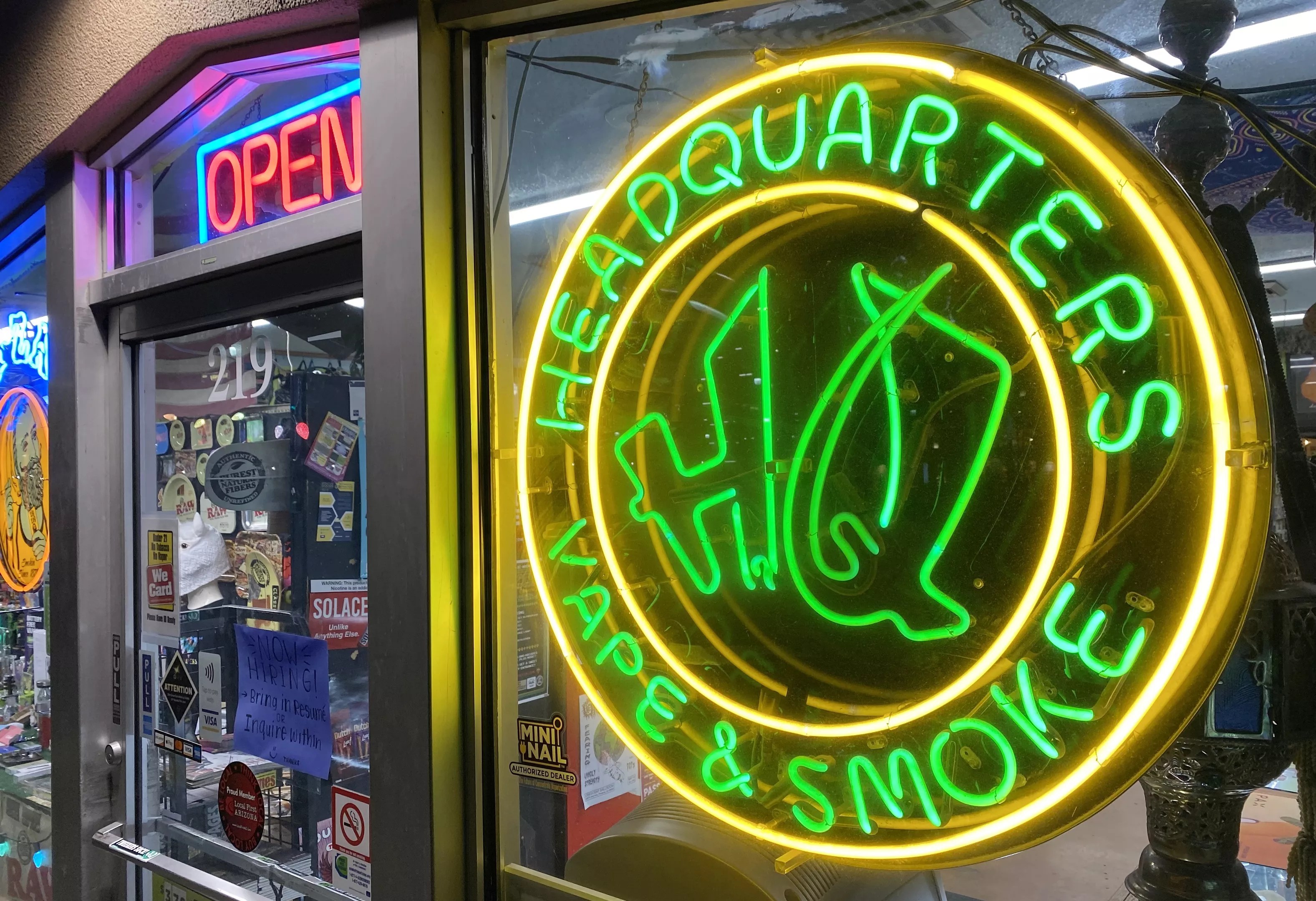
Ted Kaercher, owner of HQ Smoke & Vape in Tempe, is a vocal opponent of the city’s proposed ban.
Benjamin Leatherman
Black (and Mild) Market
While stocking up on vapes in Tempe’s neighboring localities is an easy task for most, many who spoke against the proposed ordinance worry it will create a black market for tasty nicotine products in Tempe.
Ted Kaercher, owner of HQ Smoke & Vape in Tempe, has been selling nicotine products in the city for 33 years. He’s a vocal advocate for quashing the proposed ban and suggests on his website that the Tempe City Council members are angry “Karens.”
“Making it illegal just leads to a black market,” Kaercher said. “They’re not going to sell a quality product. It will be an unregulated, unsafe product. Just like the bans on alcohol and marijuana.”
Even the conservative Arizona Border Security Alliance, a Phoenix-based group focused on illegal immigration, rejects the proposed ban on flavored tobacco. The coalition’s president, Jobe Dickinson, said the ban will only serve to foster a black market and further criminalize children.
“What prohibition brings is an illicit market of unregulated products,” Dickinson said. “It’s now approved by the FDA. You can say goodbye to that.”
In her interview with New Times, Garlid said that opponents of the ban, including Kaercher and Dickinson, made a fair point.
“We are concerned about the black market for these products,” she said. “However, we know that young people are too easily getting these products from stores.” She did not provide evidence of any smoke shop in Tempe selling nicotine products to minors.
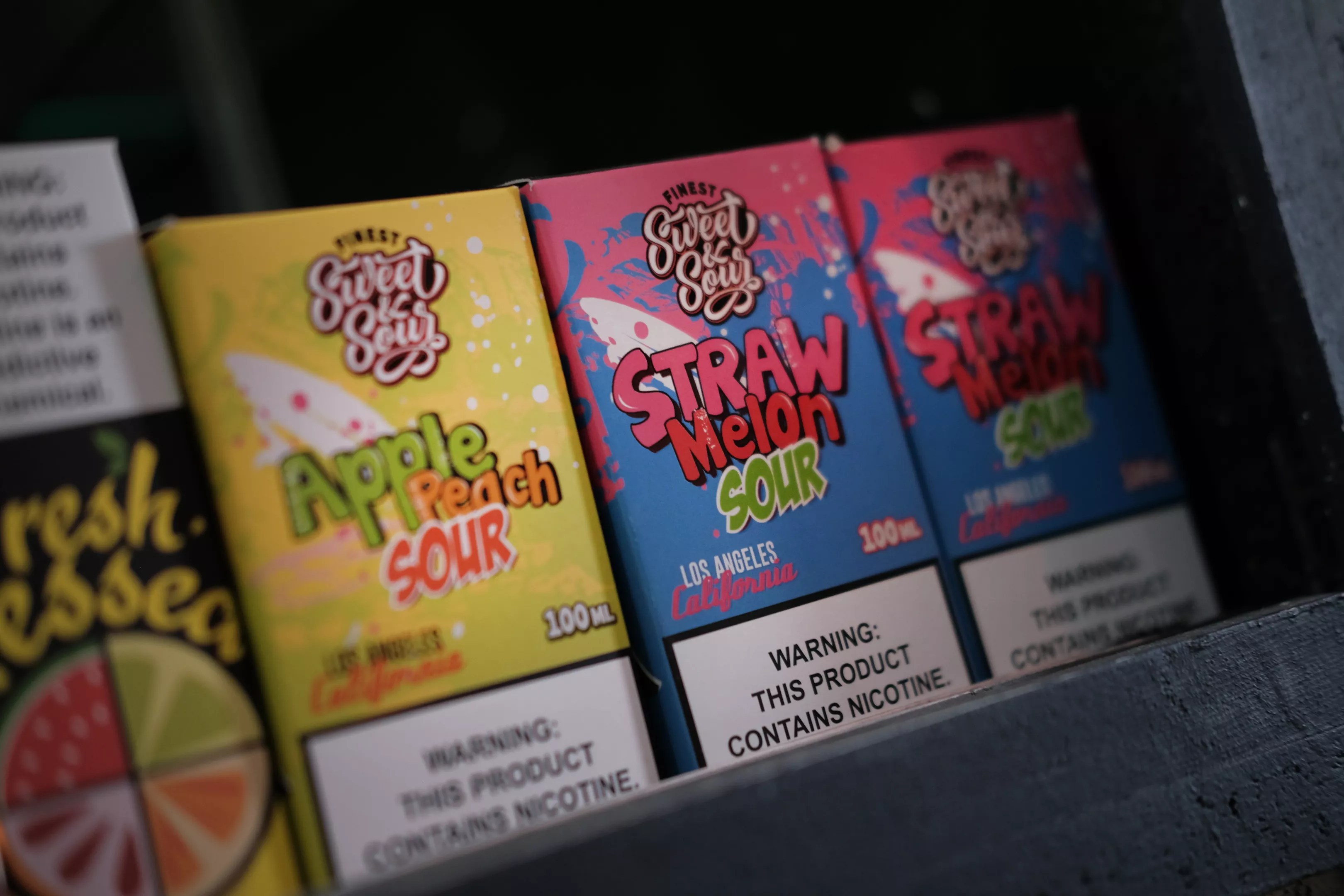
Flavored nicotine products are the target of a proposed ordinance in Tempe.
Spencer Platt / Getty Images
Next Steps
Tempe officials wouldn’t allow a group of Arab residents to bring homemade letter-size signs reading “adults like flavors too” into the December 8 meeting. But they did admit children wearing glittery t-shirts that advertised, “flavors hook kids.”
Three children, who appeared to be speaking at the urging of their concerned parents, comprised most of the small group that voiced support of the proposed ban during the two meetings in early December.
Malaya McCorvey-Wile, a sophomore at Desert Vista High School, said that any time she enters her school’s restroom, “a student is vaping tobacco in a stall.”
“I do not want to see my generation die to this terrible addiction,” McCorvey-Wile said.
The Tempe City Council tabled further action on the proposed ban until a January 12 meeting. The public is welcome to voice concerns at that meeting, although “the chances of a vote happening in January are very low,” Harrelson said.
A tentative council meeting is slated for February 23, and “after that meeting, the proposed ordinance could be scheduled for a first and second hearing and vote by the council,” Garlid said.